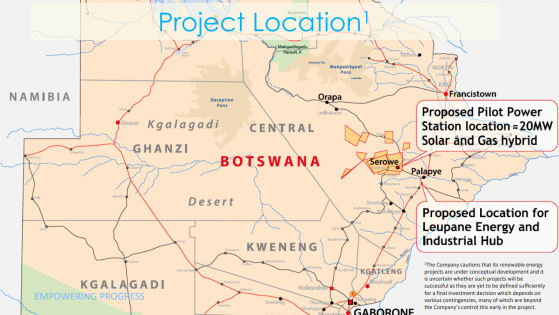As the global energy transition continues to unfold, the spotlight rarely falls on Africa where a significant portion of the population lacks access to electricity.
The International Energy Agency's Africa Energy Outlook 2022 report highlights the urgency of transforming the continent's energy infrastructure and reducing its dependence on energy imports.
Despite comprising a fifth of the world's population, Africa is accountable for less than 3% of global energy-related CO2 emissions, illustrating a stark contrast between its contribution to and the consequences it faces from the current energy paradigm.
Energy inequality
IEA Executive Director Faith Birol points out the inequity of the situation, where Africa, largely dependent on a fossil fuel-based economy, has reaped minimal benefits but suffered extensive drawbacks, especially evident during the recent energy crisis.
However, there's a silver lining with the emergence of a new global energy economy. This transition presents significant opportunities for Africa, particularly in harnessing solar power and other renewable energy sources. The continent also holds potential for developing industries around critical minerals and green hydrogen.
Positioning Botswana as a key energy player
A critical player in this transformative landscape is Botala Energy Ltd (ASX:BTE), which is focused on developing the 70% owned Serowe coal bed methane (CBM) project in Botswana.
The remaining 30% of the Serowe CBM Project is owned by Pure Hydrogen Corporation Limited (ASX:PH2) under a joint venture agreement with Botala in December 2020.
Botala’s broader vision encompasses hybrid and renewable power generation, positioning Botswana as a key energy player in a region currently reliant on the unstable power supply from South Africa.
Botala is progressing with Environmental Impact Assessments (EIA) for the development of its gas field, complete with a pipeline to the proposed Leupane Energy Hub.
The company is also progressing with separate EIA for the Serowe and Leupane sites to obtain approval in establishing gas/solar hybrid power stations should gas flow reach commercial flow rates.
During the September quarter, Botala started its inaugural commercial pilot program at Serowe, named Project Pitse.
Project Pitse is a 5-well pilot program in which Serowe-3.5 is the central well. Serowe-3.5 is expected to become Pitse's first production well.
Serowe-3.5 was drilled to a target depth of 476m (metres) and intercepted 25m of highly prospective coal in the two upper coal seams of the Serowe (13m) and Upper Morupule (12m) Formations and a further 11m of net coal in the Lower Morupule Formation.
The following charts summarise Botala’s past and ongoing work at the Serowe CBM Project.
Botala’s initiatives are aligned with the region's transition to renewable energy, recognizing the critical need for reliable energy to attract industry and generate employment.
This approach is crucial in a region where ~100 million people within 1000 kilometres of Serowe are in dire need of affordable and reliable power, especially given the challenges faced by South Africa's primary power supplier, Eskom.
Strong leadership
Dr Wolf Martinick is Botala’s executive chairman with a PhD in Agriculture and has 40-plus years’ of experience in environmental consulting, mineral exploration and the energy industry in both Australia and Africa.
Wolf Martinick founded Botala in 2018 with his son Kris Martinick who currently serves as chief executive.
Kris Martinick highlighted Botala's strategic position within the Southern African Power Pool, which boasts an excellent electricity distribution infrastructure. He emphasizes that the project is not about gas exports but serving Botswana's energy needs.
The company's mission is to be a profitable entity that facilitates a secure and sustainable future for Botswana, signifying a critical step in Africa's journey towards a more equitable and renewable energy future.
Read more on Proactive Investors AU
